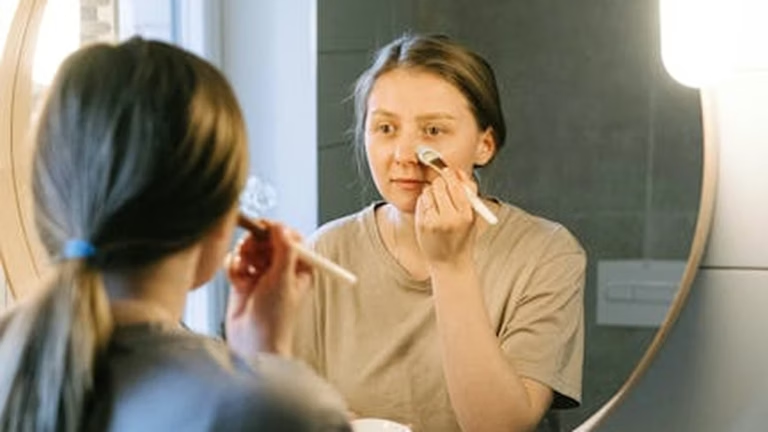Managing Anxiety: Practical Tips for Everyday Life
Understanding Anxiety
Anxiety is a natural human emotion that everyone experiences from time to time. It’s characterized by feelings of worry, nervousness, or unease, typically about an event or something with an uncertain outcome. However, when anxiety becomes excessive, persistent, and interferes with daily life, it may indicate an anxiety disorder. Understanding the difference between normal anxiety and a disorder is the first step in managing it effectively.
Anxiety disorders are among the most common mental health conditions. They can manifest in various forms, including generalized anxiety disorder (GAD), panic disorder, social anxiety disorder, and specific phobias. Each type has its own set of symptoms and triggers.
Recognizing Anxiety Symptoms
Anxiety symptoms can be both psychological and physical. Some common symptoms include:
- Excessive worry or fear
- Restlessness or feeling on edge
- Difficulty concentrating
- Irritability
- Muscle tension
- Sleep disturbances
- Rapid heartbeat
- Sweating
- Trembling
If you experience several of these symptoms regularly, it’s important to seek professional help.
Practical Tips for Managing Anxiety
While professional treatment is often necessary for anxiety disorders, there are many practical strategies you can incorporate into your daily life to manage anxiety symptoms. These tips can help you regain control and improve your overall well-being.
Mindfulness and Meditation
Mindfulness involves paying attention to the present moment without judgment. It can help you become more aware of your thoughts and feelings, allowing you to respond to them in a more balanced way. Meditation is a practice that cultivates mindfulness through focused attention.
How to practice mindfulness:
- Start small: Begin with just 5-10 minutes of mindfulness meditation each day.
- Focus on your breath: Pay attention to the sensation of your breath entering and leaving your body.
- Observe your thoughts: Notice your thoughts without getting carried away by them. Let them pass without judgment.
- Try a guided meditation: Many apps and websites offer guided meditations for anxiety.
Deep Breathing Exercises
Deep breathing exercises can activate the parasympathetic nervous system, which promotes relaxation and reduces anxiety. One effective technique is diaphragmatic breathing, also known as belly breathing.
How to practice diaphragmatic breathing:
- Sit or lie down comfortably.
- Place one hand on your chest and the other on your abdomen.
- Inhale slowly and deeply through your nose, allowing your abdomen to rise while keeping your chest relatively still.
- Exhale slowly through your mouth, allowing your abdomen to fall.
- Repeat for 5-10 minutes.
Regular Exercise
Physical activity is a powerful tool for managing anxiety. Exercise releases endorphins, which have mood-boosting effects. It also helps to reduce stress hormones and improve sleep.
Tips for incorporating exercise into your routine:
- Find an activity you enjoy: Choose something you find fun, whether it’s walking, running, swimming, dancing, or yoga.
- Set realistic goals: Start with small, achievable goals and gradually increase the intensity and duration of your workouts.
- Make it a habit: Schedule exercise into your calendar and treat it like any other important appointment.
Healthy Diet
What you eat can significantly impact your mood and anxiety levels. A balanced diet rich in fruits, vegetables, whole grains, and lean protein can provide your body with the nutrients it needs to function optimally. Avoid excessive caffeine, alcohol, and processed foods, as these can exacerbate anxiety symptoms.
Limit Screen Time
Excessive screen time, especially before bed, can disrupt sleep and increase anxiety. The blue light emitted from screens can interfere with melatonin production, making it harder to fall asleep. Social media can also contribute to anxiety by creating feelings of comparison and inadequacy.
Tips for reducing screen time:
- Set limits: Use apps or built-in features on your devices to limit your screen time.
- Create screen-free zones: Designate certain areas of your home, such as your bedroom, as screen-free zones.
- Avoid screens before bed: Power down your devices at least an hour before bedtime.
Improve Sleep Hygiene
Lack of sleep can worsen anxiety, creating a vicious cycle. Prioritizing good sleep hygiene is crucial for managing anxiety symptoms.
Tips for improving sleep hygiene:
- Establish a regular sleep schedule: Go to bed and wake up at the same time each day, even on weekends.
- Create a relaxing bedtime routine: Engage in calming activities before bed, such as reading, taking a warm bath, or listening to soothing music.
- Ensure a comfortable sleep environment: Make sure your bedroom is dark, quiet, and cool.
Seek Social Support
Connecting with others can provide a sense of belonging and reduce feelings of isolation, which can contribute to anxiety. Talk to friends, family members, or a therapist about your struggles. Joining a support group can also be helpful.
Challenge Negative Thoughts
Anxiety often involves negative and irrational thoughts. Learning to identify and challenge these thoughts can help you reframe your perspective and reduce anxiety.
How to challenge negative thoughts:
- Identify the thought: What are you thinking or saying to yourself?
- Challenge the thought: Is there evidence to support this thought? Is there evidence against it?
- Reframe the thought: Can you rephrase the thought in a more positive or realistic way?
When to Seek Professional Help
While these tips can be helpful for managing anxiety, it’s important to seek professional help if your anxiety is severe, persistent, or interfering with your daily life. A therapist or psychiatrist can provide evidence-based treatments, such as cognitive-behavioral therapy (CBT) or medication, to help you manage your anxiety and improve your quality of life. Don’t hesitate to reach out for support.
Conclusion
Managing anxiety is an ongoing process that requires commitment and self-compassion. By incorporating these practical tips into your daily life and seeking professional help when needed, you can take control of your anxiety and live a more fulfilling life. Remember, you are not alone, and help is available.






